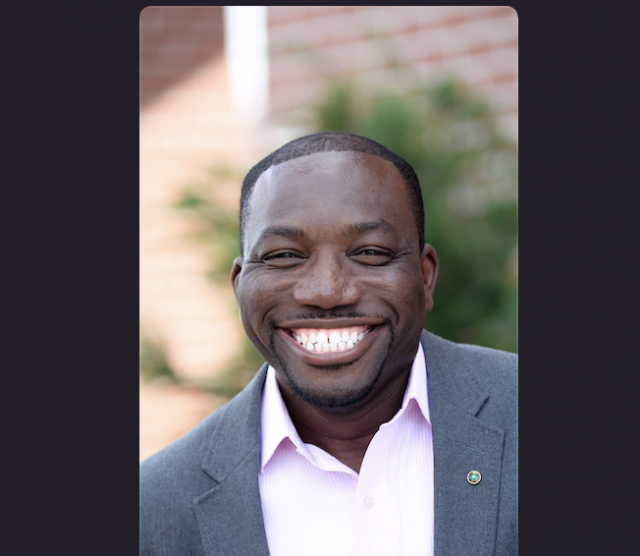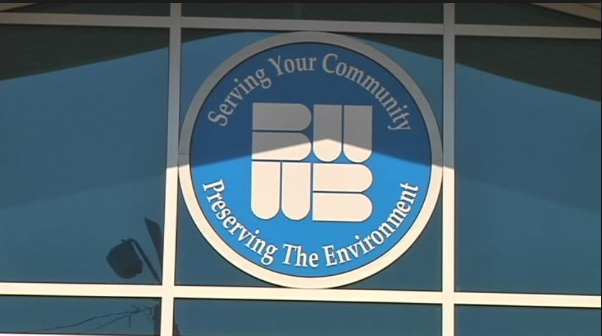By Matt Windsor
UAB Magazine
Bolaji Kukoyi hails from Lagos, one of the world’s largest cities. “There are people from every race, every tribe,” he says. By the time he came to UAB in 1998, Kukoyi already had family on campus. His brother, Oladipo — known as “Ladi” — had a scholarship to go to medical school and chose UAB as it was ranked in the top 20 nationwide in his areas of interest: family medicine and psychiatry.
Ladi Kukoyi, M.D., graduated from the School of Medicine in 1999 and is now executive director of Birmingham VA Health Care. Their younger sister, Mobola, also came to UAB a few years after Bolaji, earning undergraduate and master’s degrees before going to Duke University for medical school.
(Another brother, Yinka, is a partner at the global accounting firm KPMG.) In 2007, Bolaji and the engineering firm he founded, Dynamic Civil Solutions, were recognized in the UAB National Alumni Society’s Excellence in Business Top 25 awards program.
How did you end up majoring in both engineering and math?
“Stephen was mostly focused on his math. For me, I wanted to be an engineer. My attraction to the Fast Track Program was money. [The program had scholarship funding available through the National Science Foundation.] I was a 17-year-old kid paying out-of-state tuition and working 20 hours a week for $5 an hour. Tuition for my first year was mostly generated on credit cards. Several other international students were doing the Fast Track, so I probably heard about it at the I-House. I was pretty decent at math, and they would pay me to do it? I thought, ‘Sign me up.’
“It was a lot of work, but also great exposure; I did a lot of tutoring in and out of classrooms. Most of us, we got here because our parents gave us everything they had. We were investments to them. There was no safety net. We just had to get it done, regardless of how many hours it took.”
That sounds like a lot of pressure.
“No pressure, just motivation. I love a challenge. I don’t like to lose; if you beat me, I am coming back for you. That pushes me to do better. I push my guys all the time. I tell them, ‘There is no sloppy work that leaves this office.’ I want people pushing me.
“It is the same with Shegun and Stephen. There is inspiration we draw from each other, feeding off each other. When we were in school, we hung out at Stephen’s apartment a lot and we had one car that we shared among us. I’m happy for what they are doing and for their success and I know they feel the same. I see Stephen every time he is in town, and I play racquetball with Shegun two or three times a week.”
Racquetball is your game?
“I love the pace, but I love all things racquet: table tennis, pickleball, tennis. I like to talk some smack and I love to sweat. It’s a good workout.”
Stephen talked about your success at pool. Did your math training help with that? The angles and everything?
“I’m not sure about that. I know some not-so-bright people who are pool champions.”
What is your engineering firm’s specialty?
“At Dynamic Civil Solutions, we do all things infrastructure: site circulation, layout, parking, utilities, firefighting. We have been involved in a lot of the major projects on campus, including the Collat School of Business, PNC Field, the School of Nursing, the new inpatient rehabilitation facility. We also work all over the state. We have several projects in Huntsville, several in southwest Alabama and in Montgomery.”
What does the future hold for Birmingham?
“From a civil engineering standpoint, there are a lot of deficiencies in infrastructure. That has to be fixed, and we are here at the right time, with the record spending on infrastructure [through President Biden’s Infrastructure Investment and Jobs Act, which will invest $110 billion in extra spending on major projects and repairs for roads and bridges]. These are maybe once-in-a-lifetime projects in your city.
“I do a lot of traveling, and everywhere I go I am soaking in what I see: we could use that in Birmingham; that would be a great addition. When I go to conferences and talk to national firms, I pick up nuggets here and there and think, what does that look like for our city?”
It must be exciting to be a part of Birmingham’s growth.
“Birmingham is in this transition from being a commuter city to a true urban city. There are projects like Protective Stadium and Regions Field, as well as road diets, Birmingham Express transit stations and a focus on bicycles, pedestrians, and alternate modes of transportation. Being able to be involved in those things and being part of the change is really something. When I drive around, I can say, ‘We’ve been involved in changing the landscape of the city I live in.’ I’ve lived here for 25 years. My wife is from Choctaw County. My kids were born here in Birmingham, and my business was born here. Birmingham is home for me.”
Click one of the links below to read similar stories.
Nigerian-born UAB Alums Connect Through Culture and Community Service
After Selling His Company for $1.2 Billion, Shegun Otulana Builds Better Birmingham




